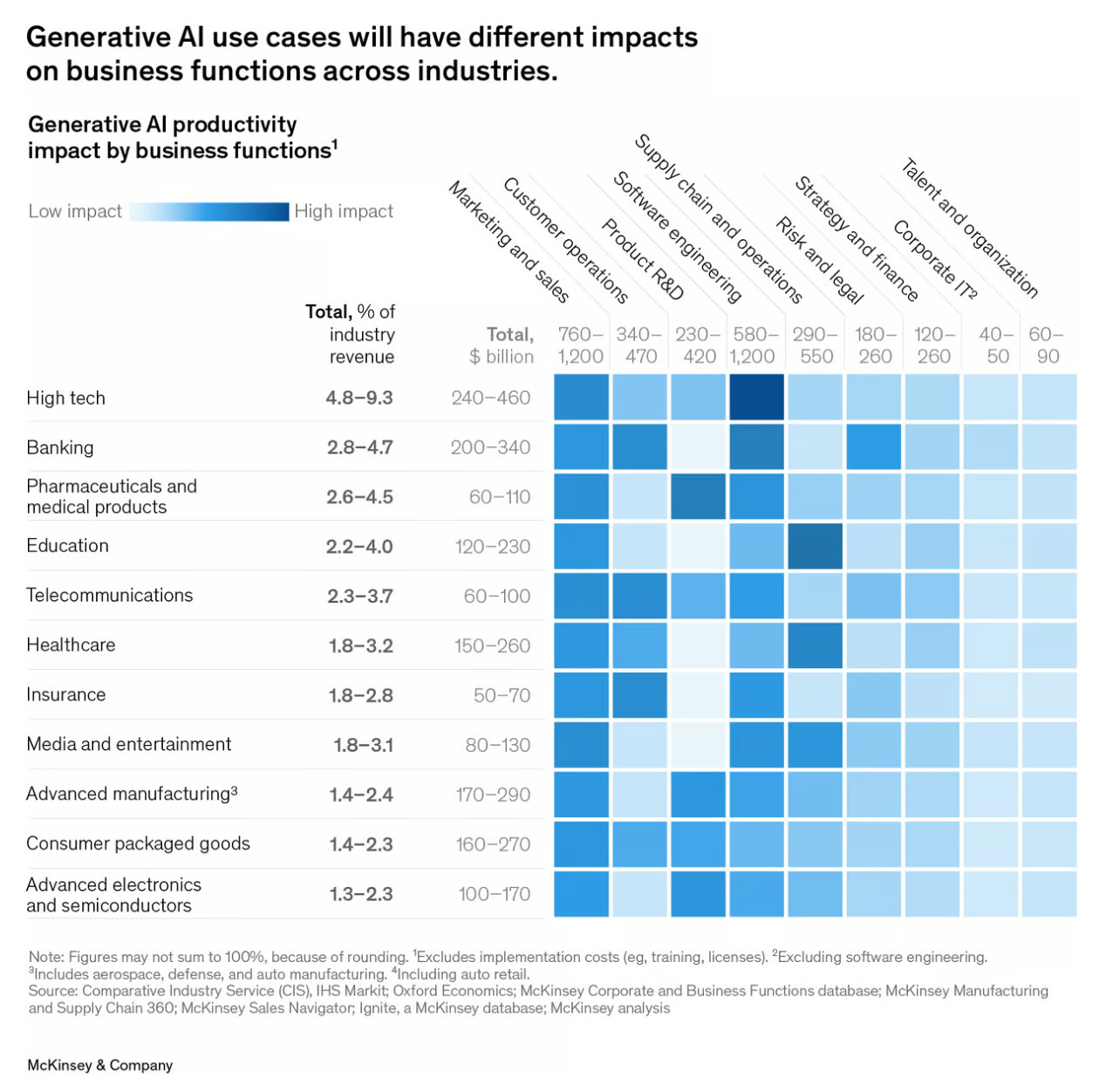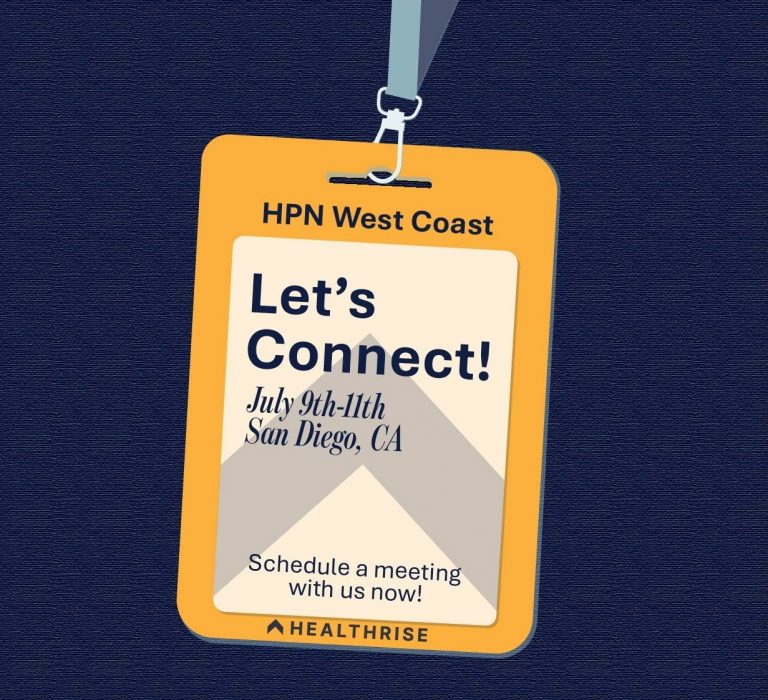

Generative AI is making significant inroads into healthcare, particularly in administrative roles, which are traditionally time-consuming and resource intensive. Administrative tasks in healthcare – like managing patient records, processing insurance claims, scheduling, and regulatory compliance – consume a considerable amount of time for healthcare professionals. This is where generative AI can be a game-changer.
Generative AI: Transforming How Organizations Manage Employee Productivity
Automating Routine Tasks for Increased Efficiency
One of the most immediate benefits of AI in healthcare is its ability to streamline administrative workflows. AI-powered systems can help automate the process of updating patient records, transcribing physician notes, and scheduling appointments. These tasks, which often require substantial human input, can be executed much faster by AI, freeing up time for administrative staff to focus on more complex, patient-centered activities.
According to McKinsey Insights, administrative roles, especially in professional services such as healthcare, will see a productivity gain of up to 14% from AI adoption (Chui et al., 2023). AI systems can handle a variety of back-office tasks, such as processing forms, managing data, and even assisting with insurance claims management.
Reducing Administrative Burden for Healthcare Providers
For doctors, nurses, and other healthcare professionals, administrative work often takes up hours of time that could otherwise be spent on patient care. Generative AI tools can assist in drafting patient reports, summarizing medical histories, and even managing communications with insurance providers. This reduces the paperwork burden and allows healthcare providers to focus on clinical tasks.
Moreover, by automating these repetitive tasks, AI not only increases operational efficiency but also reduces the likelihood of human errors, which are common in administrative processes. This can lead to better patient outcomes as healthcare providers can rely on more accurate and timely information.
Impact on Claims Processing and Insurance Communication
One of the most significant administrative burdens in healthcare is claims management. Processing insurance claims is time-consuming, requiring meticulous data entry, verification of medical codes, and frequent follow-ups with insurance providers to address discrepancies or denials. Generative AI can transform this process by automating the generation and submission of claims, ensuring they are accurate and complete.
AI-Driven Systems Can:
- Automate medical coding: Generative AI can accurately interpret medical records and assign the appropriate diagnostic and procedure codes, minimizing coding errors, which are a common cause of claim denials.
- Pre-screen claims: AI can pre-screen insurance claims before submission, flagging potential issues that could lead to denials, such as missing information or incorrect coding. This reduces the back-and-forth between healthcare providers and insurers, speeding up the payment process.
- Streamline follow-ups: With AI, follow-up communications with insurance companies can also be automated, ensuring that claims are processed more efficiently. Instead of staff having to manually track down the status of a claim, AI tools can send reminders, respond to queries, and follow up on unpaid claims.
This automation of the claims process not only saves time but also reduces the likelihood of delays and rejections, improving cash flow for healthcare providers. Additionally, by reducing administrative complexities, AI enables providers to focus on patient care and other mission-critical tasks rather than getting bogged down by paperwork.
Enhanced Accuracy and Reduced Human Error
AI’s ability to handle large volumes of claims data with precision can significantly reduce errors that often occur during manual claims processing. Claims that are rejected due to simple mistakes—incorrect data entry, wrong medical codes, or missing documentation—cost healthcare providers both time and money. With AI, claims can be generated automatically based on patient records, ensuring that they are correct and complete before submission.
By enhancing the accuracy of claims and automating follow-ups, AI reduces the overall burden on healthcare providers and speeds up reimbursement processes, leading to improved financial stability for medical institutions. The enhanced accuracy also results in fewer denied claims, ultimately improving the patient experience by ensuring that insurance issues don’t delay or complicate care.
Transforming Patient Interactions and Enhancing Experience
In healthcare, where patient experience is paramount, AI tools can be used to manage patient interactions more effectively. For example, AI chatbots can handle routine inquiries, such as appointment scheduling or answering common medical questions, allowing administrative staff to focus on more critical and personalized interactions. This not only improves productivity but also enhances patient satisfaction.
The impact of AI on administrative roles in healthcare aligns with broader trends in other industries. While the fear exists that AI might replace jobs, the reality is that these tools are freeing up staff to focus on higher-level tasks that require human expertise, empathy, and decision-making. Rather than eliminating jobs, AI is helping healthcare organizations run more efficiently while improving the patient experience.


(Chart: McKinsey’s breakdown of AI’s productivity impact in professional services and healthcare roles)
As shown in the chart, AI’s impact on administrative functions in healthcare and professional services is significant, with potential productivity gains across various business functions. Whether it’s automating claims processing or helping manage patient data, the role of generative AI in healthcare will only continue to grow.
The Path Forward for Healthcare Administrators
For healthcare organizations, it’s clear that AI offers a promising path to better productivity and improved patient care. But to fully realize these benefits, healthcare administrators must be prepared to integrate AI tools thoughtfully into their workflows. This includes:
- Investing in AI training for administrative staff to ensure they can work efficiently alongside AI tools.
- Streamlining workflows where AI can automate repetitive tasks like scheduling, insurance claims processing, and data entry.
- Prioritizing data security as AI tools handle sensitive patient information, ensuring that AI integration complies with healthcare regulations like HIPAA.
With these steps, healthcare organizations can ensure that AI enhances their administrative operations without displacing jobs. Instead, AI will complement human roles by automating routine tasks, allowing healthcare workers to focus on what they do best—providing care and ensuring positive patient outcomes.
Healthrise provides a multitude of tools – including AI, analytics, dashboards, EHR optimization, productivity tracking, and more. We can help customize a pathway to improvement for your organization. Simply contact us to get started.
Author: Brian Allee, Director of Data Services, Healthrise



